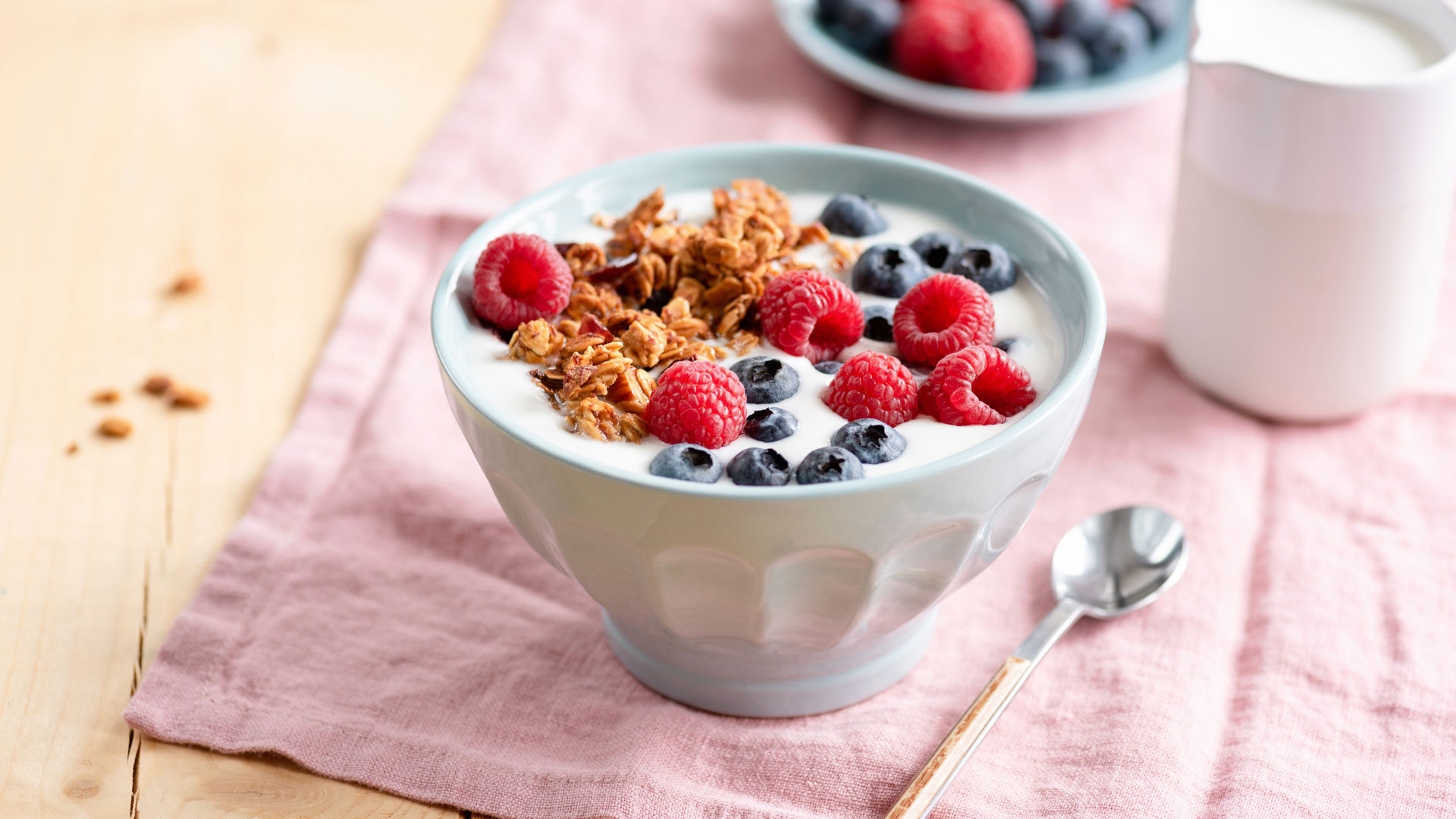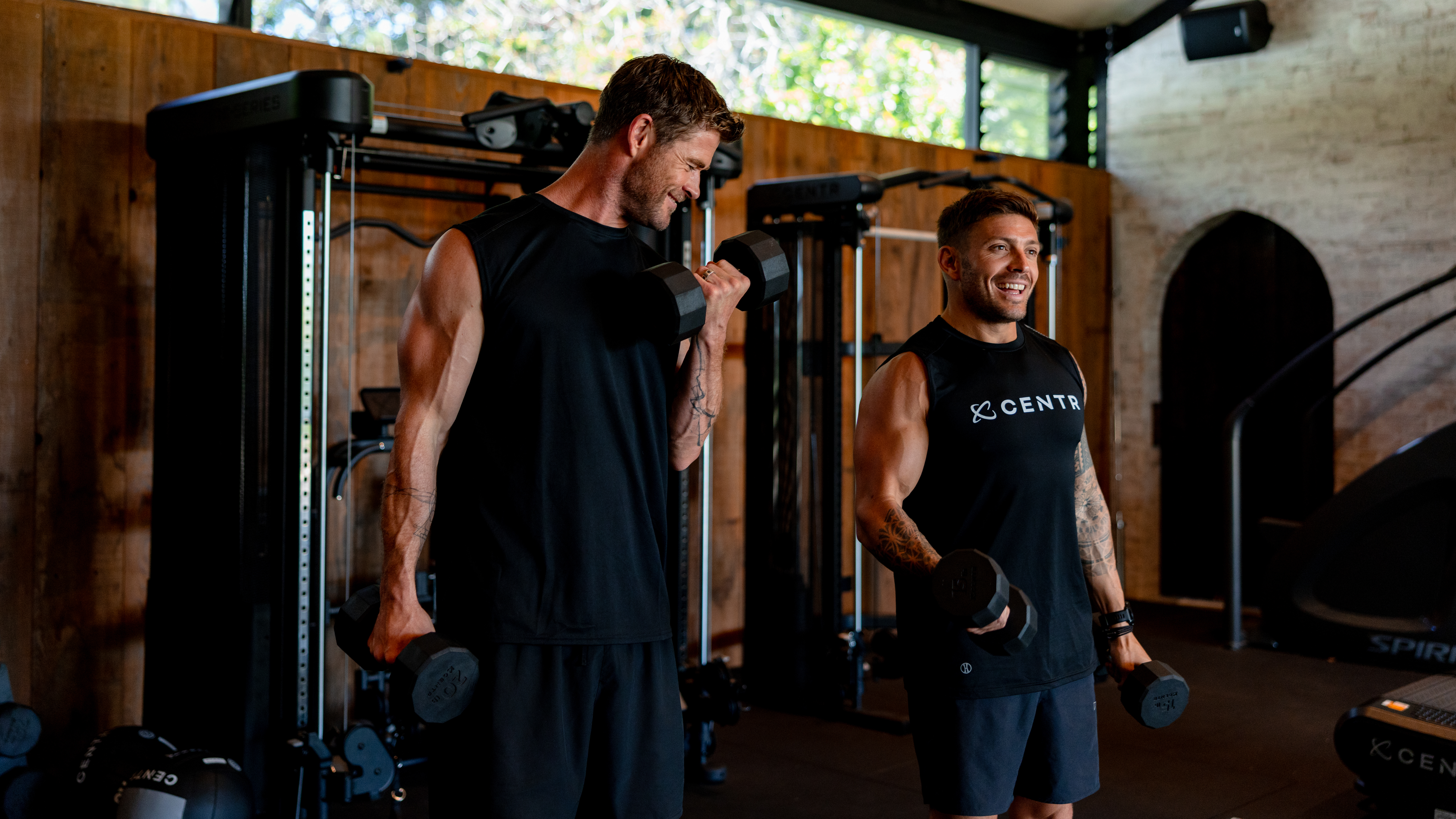Which foods build muscle?
Wondering which foods build muscle? We spoke to a nutritionist to find out


Find out which foods build muscle along with the role our diet choices have on our body’s ability to change. If you’ve been hitting the gym hard with the best adjustable dumbbells, what you eat is just as important as what you lift. High-protein foods are important for gaining muscle, but carbohydrates and fats are also necessary sources of energy and play their part in muscle building.
Lisa Monger is a nutritionist and health and fitness mindset coach with over 15 years of experience. She says, “Food quality and quantity matter. Think of it as the fuel you put in your car. You could use recycled fat and it might work but your car won't be in great shape or perform as well if you put the right amount of good quality fuel in it.”
If your goal is to gain lean muscle, you should focus on exercising regularly and eating more calories each day from muscle-building foods. But which foods exactly are those?
How does food help you build muscle?
The International Sports Sciences Association (ISSA) says that through strength training, there will be a breakdown of muscle tissue that your body needs to repair. What you eat during that recovery period will help you rebuild your muscles bigger and stronger. Furthermore, if you aren’t eating right you won’t have the energy to do muscle-building workouts.
The ISSA recommends that to make the most gains in muscle mass and strength you need:
- To reach your daily target of calories per day, a figure that can be worked out with a nutritionist or by following the ISSA guidelines, who recommended starting somewhere around 250 extra calories per day over your recommended daily amount and making adjustments from there.
- Adequate protein to actually rebuild more muscle tissue.
The American College of Sports Medicine (ACSM) says that to increase muscle mass in combination with physical activity, it is recommended that a person that lifts weights regularly or is training for an event eat a range of 1.2-1.7 grams of protein per kilogram of body weight per day, or 0.5 to 0.8 grams per pound of body weight. So, a 75-kilogram individual should increase their protein intake to 75 grams to 128 grams in order to gain muscle mass.

Which foods are best for building muscle?
Lisa Monger says, “Protein is important when it comes to building muscle. Protein helps you to maintain or increase muscle size and strength, fueling your training, and helping you with recovery as the tiny tears in your muscles that you've created repair. Aim for 1-1.5 palm-sized servings of protein like chicken, pork, or plant-based protein like beans and pulses in a meal a couple of hours before a workout.”
Get the Fit&Well Newsletter
Start your week with achievable workout ideas, health tips and wellbeing advice in your inbox.
Salmon is also a great source of protein for muscle building. Each serving of salmon contains about 17 grams of protein and almost two grams of omega-3 fatty acids. Research shows omega-3 fatty acids may increase muscle gain during exercise programs.
Greek yogurt often contains approximately double the amount of protein as regular yogurt. Studies have shown that eating Greek yogurt after a workout may be beneficial due to its mixture of fast- and slow-digesting proteins.
One cup of frozen edamame provides around 17 grams of protein and 8 grams of fiber. It also contains large amounts of folate, vitamin K and manganese. Among other functions, folate helps your body process amino acids, the building blocks of protein. Another way to get protein into your diet is through some of the best protein powders because they can be added into meals, baked into brownies, or enjoyed as a shake.
Monger says that carbohydrates are also vital for muscle building, “Carbs will fuel your body to be able to perform at your best when you're training and have sufficient energy to do the hard graft you need to do to build muscle. They'll also work with protein to create protein synthesis which prevents protein breakdown. Add 1-2 cupped handfuls of carbs like rice, pasta, or potato to your meal along with a couple of fist-sized portions of veggies for fiber and a thumb-sized serving of healthy fats and you are on your way to giving your body the fuel it needs.”
What else is important for muscle building?

Researchers and experts continually study the science of optimizing muscle gain, and agree that resistance training using moderate to heavy loads, combined with a relatively high protein intake, remains the preferred training method for increasing muscle mass.
According to the Physical Activity Guidelines for Americans, adults should engage in muscle-strengthening exercises that involve all major muscle groups at least twice weekly.
Examples of strength training activities include:
- lifting free weights
- using weight machines
- working out with a resistance band
- bodyweight exercises, such as pushups and squats
In terms of the best exercise type for muscle building, research shows compound and isolation movements can be equally effective. Compound movements like barbell squats stimulate multiple large muscle groups in a single exercise. This leads to both more efficient workouts and muscle strength.
Isolation movements are an excellent way to target specific muscles, which works well if you are looking to strengthen a particular part of your body or are recovering from an injury before compound exercises can be completed again. Examples of isolation exercises would include ab crunches, hammer curls, and the shoulder press.
Rest is also important when it comes to building muscle. According to an exercise initiative from the U.S. Department of Veterans Affairs, it’s advisable not to carry out strength training on the same muscle group on two consecutive days.
Getting enough sleep is also significant for the process of muscle growth. The researchers behind a 2011 study concluded that sleep debt decreases protein synthesis, contributes to the loss of muscle mass, and inhibits muscle recovery. However, further studies are needed to confirm the link. A 2019 study found no direct correlation between sleep and muscle gain. However, the study authors do suggest that sleep deprivation can increase the amount of the stress hormone cortisol that circulates the body after exercise. Reducing stress may help a person build muscle, as research has shown the hormones the body releases during periods of stress have a negative effect on muscle development.
Want to know more about building muscle? Perfect your form with our steps on how to deadlift with dumbbells.
Catherine is a freelance journalist writing across titles such as Verywell Health, Healthline, The Daily Telegraph, Refinery29, Elle, and Vogue. She specializes in content covering health, fitness, wellness, and culture. A once reluctant runner, Catherine has competed in 30 running events in the past five years and looks forward to one day running the London Marathon.
-
 Build blockbuster arms and abs with Chris Hemsworth's go-to dumbbell circuit
Build blockbuster arms and abs with Chris Hemsworth's go-to dumbbell circuitAll you need are adjustable dumbbells and 20 minutes
By Sam Rider Published
-
 Forget crunches—if I wanted to improve core strength I'd do this neck-friendly Pilates workout
Forget crunches—if I wanted to improve core strength I'd do this neck-friendly Pilates workoutAnd it takes just five minutes
By Maddy Biddulph Published